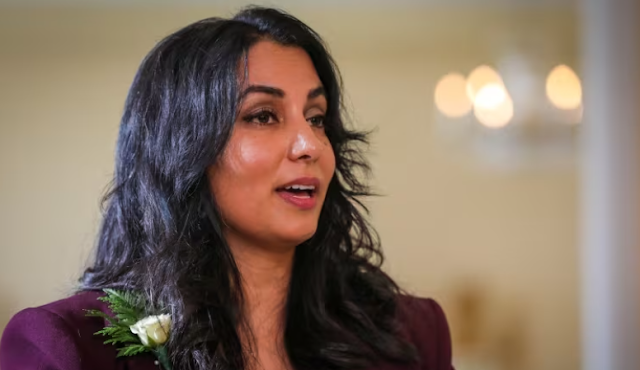Interpol data confirms Canada is
‘ground zero’ for car thefts: experts
As government, police and other stakeholders work to combat Canada’s auto theft crisis, a May report from Interpol says the country ranks among the top 10 countries in hits it has received in its database of stolen motor vehicles this year, with some calling it “ground zero.”
According to the agency, that ranking comes just three months after the Royal Canadian Mounted Police integrated the Canadian Police Information Centre’s stolen vehicle database with Interpol’s own. Prior to that integration, all entries on the database were submitted manually.
Since then, more than 1,500 vehicles stolen in Canada have been detected globally in just three months. In addition, the RCMP’s database has details on about 150,000 vehicles stolen in Canada and, since February, more than 200 have been identified weekly as law enforcement checks their information, typically at ports of entry.
“We’ve been calling this a national auto theft crisis for over a year now,” Liam McGuinty, vice-president strategy at the Insurance Bureau of Canada, told Global News.
In 2022 alone, more than 105,000 vehicles were stolen across Canada, according to IBC.
Those thefts cost money. IBC released a list of the costliest cities for auto theft in 2023, and Toronto sat on top for Ontario with a 561 per cent increase over the past five years, with about $371 million in claims.
McGuinty said auto theft claims amounted to $1.5 billion nationally last year.
The increase came from a “perfect storm” of the COVID-19 pandemic causing supply chain issues, in addition to problems involving availability and cost of vehicles.
“I think organized crime in Canada has found a way to successfully export cars to destination markets,” he said, noting Interpol also highlighted the Middle East and Africa.
Interpol said in May that stolen vehicles have become an “international criminal currency,” and car theft has become part of a “major revenue stream” for organized crime. The agency added, however, that global data sharing allows for better screening of vehicles at border points, identification trafficking routes and arrests of those involved.+
In a statement to Global News, the RCMP said that its CPIC database was accessible to foreign law enforcement, but integration with Interpol was needed due to lack of awareness.
“It is helping foreign police stop stolen Canadian cars and giving police everywhere leads to track down and disrupt the gangs responsible,” the RCMP wrote in an email.
A spokesperson for Public Safety Minister Dominic LeBlanc added that auto theft requires insurance companies, manufacturers, law enforcement and other stakeholders to identify solutions, with each partner having a role in prevention and recovery.
He forgot to mention Canada's Justice system which ensures that those arrested for car theft are back out on the streets to continue their business within hours. This is normal under Trudeau's policy of keeping criminals out of jails. Bail need to be much harder to get. Sentences need to be increased (I suggest doubling the sentence for each similar conviction).
Elliott Silverstein, the director of government relations for Canadian Automobile Association (CAA) Insurance, told Global News while Canada is not alone in auto theft, the country is still in a tough spot.
“We are certainly a ground zero for vehicle theft around the world,” he said.
He, alongside Interpol, notes Canada has a collection of high-value vehicles that are enticing to auto thieves, such as sports-utility vehicles (SUVs) and crossovers.
Silverstein said governments and law enforcement have made efforts to deter theft — such as banning certain devices that could be used for theft — but more effort should be made. This includes car manufacturers working to make vehicles harder to steal and making it harder to get vehicles out of ports that are used.
“This is the equivalent in Canada on an annual basis of having a catastrophic incident like a flood or hurricane or wildfire, but it happening every single day of the year through the year with no end in sight,” Silverstein said.
However, McGuinty adds it will take a “whole of society approach” to solve the crisis because just tackling one area where it’s happening (the East Coast, for example) won’t be enough to stop it.
“If you clamp down on one pain point or one problem area, it’s a game of whack-a-mole. It will pop up somewhere else,” McGuinty said.
============================================================================================















